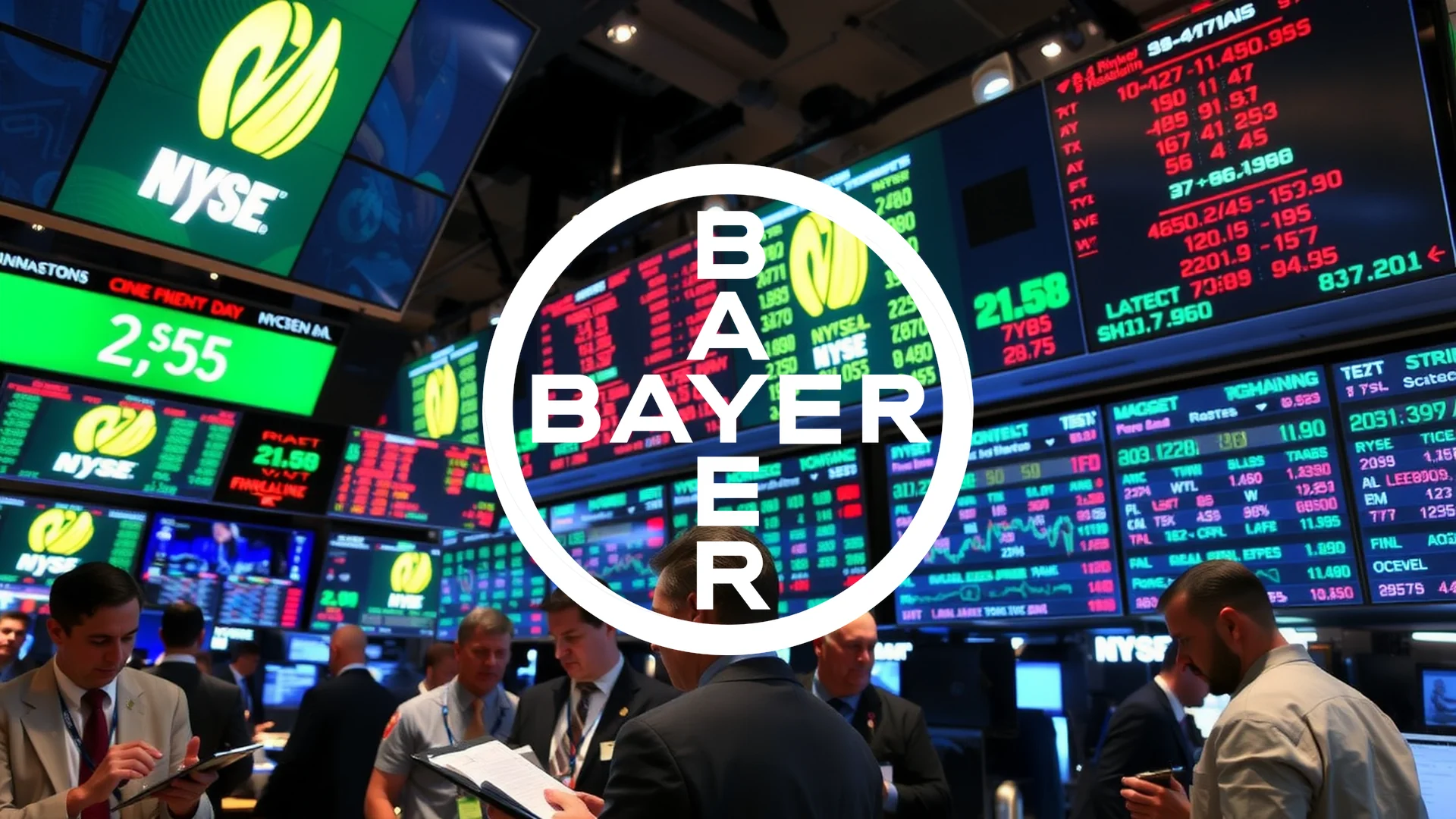Bayer’s pharmaceutical division has encountered a significant clinical development hurdle as its promising heart failure drug candidate, Vericiguat, failed to meet the primary endpoint in its crucial Phase 3 trial. This development emerges alongside the company’s robust second-quarter earnings report and upgraded annual forecast, highlighting the contrasting realities of pharmaceutical innovation—where breakthrough potential coexists with substantial research risks.
Quarterly Results Demonstrate Operational Strength
Despite the clinical disappointment, Bayer presented impressive financial metrics for the second quarter. The company achieved revenue of €10.7 billion, representing a currency-adjusted increase of 0.9%. More notably, core earnings per share surged to €1.23, marking a substantial 30.9% improvement compared to the same period last year.
The pharmaceutical segment showcased particular vitality with two standout performers: cancer drug Nubeqa recorded impressive growth of 51%, while kidney disease treatment Kerendia advanced by 67%. Meanwhile, the Crop Science division showed signs of recovery, posting 2.2% growth during the quarter. Based on this strengthened performance, management has raised its full-year 2025 guidance, now projecting revenue between €46-48 billion and EBITDA before special items in the range of €9.7-10.2 billion.
Vericiguat Study Fails Primary Objective
In collaboration with partner Merck & Co, Bayer acknowledged that the VICTOR study for Vericiguat did not achieve statistical significance for its primary endpoint. The trial was designed to evaluate the drug’s efficacy in patients experiencing heart failure with reduced ejection fraction. While the compound previously received EU approval for treating symptomatic chronic heart failure, this setback represents a notable pipeline disappointment as it prevents expanded regulatory approval.
Company officials emphasized that the safety profile remained consistent with earlier study data, providing some reassurance about the drug’s existing approved applications. Nevertheless, the failure to demonstrate broader efficacy represents a meaningful setback for Bayer’s cardiovascular portfolio.
Should investors sell immediately? Or is it worth buying Bayer?
Restructuring Progress and Ongoing Challenges
Under CEO Bill Anderson’s leadership, Bayer continues to advance its cost optimization initiatives. The workforce has been reduced by 7.3% over the past year, bringing total employment to 89,556. Additional position eliminations are planned over the next 18 months as part of ongoing efforts to enhance competitive positioning.
However, legacy issues continue to present headwinds. The company has allocated €1.2 billion in new provisions for glyphosate-related litigation, underscoring the persistent legal uncertainties surrounding its Roundup products. These ongoing challenges complicate the company’s recovery narrative despite operational improvements.
Innovation Strategy Faces Critical Test
The Vericiguat outcome underscores the inherent volatility of pharmaceutical research, though Bayer continues to pursue promising specialized therapeutic areas. Recent research presented at the World Sleep Congress 2025 focusing on menopausal sleep disorders demonstrates the company’s commitment to expanding its women’s health portfolio, an identified growth priority.
Bayer shares currently trade at €27.38, approximately 10% below their 52-week high of €30.48. The stock’s substantial volatility—measured at 37.74%—reflects the ongoing tension between operational successes and persistent challenges. With shares declining 2.13% following the mixed announcements, markets appear to be weighing the clinical setback more heavily than the upgraded financial guidance and strong pharmaceutical growth drivers.
Ad
Bayer Stock: Buy or Sell?! New Bayer Analysis from February 8 delivers the answer:
The latest Bayer figures speak for themselves: Urgent action needed for Bayer investors. Is it worth buying or should you sell? Find out what to do now in the current free analysis from February 8.
Bayer: Buy or sell? Read more here...










